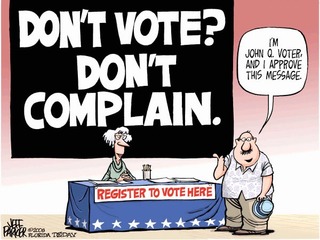DUOS expands AI capabilities to help seniors apply for assistance programs
It will complete and submit forms, and integrate with state benefit systems
Read more...
(Updated to reflect comment from Facebook)
Last week, Facebook sent a note to its users, altering them that it was proposing updates to its Data Use Policy and to its Statement of Rights and Responsibilities. Among the other changes that Facebook was looking to implement are adding new filters for managing incoming messages and integrating users’ Instagram information into their Facebook profiles. Most controversially, Facebook said it would eliminate the right of Facebook users to vote on proposed policy changes.
These proposed changes have been met with disapproval from privacy groups, and the Presidents of two agencies sent a letter to Facebook CEO Mark Zuckerberg, dated November 27, which asked him to halt the implementation of the changes.
“Because these proposed changes raise privacy risks for users, may be contrary to law, and violate your previous commitments to users about site governance, we urge you to withdraw the proposed changes,” Marc Rotenberg, President of Electronic Privacy Information Center (EPIC) and Jeffrey Chester, President Center for Digital Democracy, wrote in the letter.
Here is what the two had said to say about each issue:
The way the current system works, if 30% of all Facebook users vote for or against the new proposals, the result will stick. If less than 30% of users vote, then the result merely becomes “advisory,” and is essentially meaningless.
Given that, 300 million people would have to take part in this to alter what Facebook is proposing to do.
In June, the last time Facebook put its proposed changes to its privacy policy up for a vote, only 342,632 of the then 900,000 users took the time to give their opinion. 30% of all Facebook users would have been closer to 270 million. In all, only .038% of all Facebook users voted last time.
In a blogpost last week, Elliot Schrage, Vice President, Communications, Public Policy and Marketing at Facebook, wrote that “the voting mechanism, which is triggered by a specific number of comments, actually resulted in a system that incentivized the quantity of comments over their quality.”
“Therefore, we’re proposing to end the voting component of the process in favor of a system that leads to more meaningful feedback and engagement,” he said.
While Rotenberg and Chester acknowledge that Facebook had “set an unreasonably high participation threshold,” it would be worse to do away with voting completely.
“Scrapping the mechanism altogether raises questions about Facebook’s willingness to take seriously the participation of Facebook users,” they wrote.
Facebook added a section to its Data Use Policy called “Affiliates,” which says that Facebook can share users information with other businesses, or affiliates, “that are legally part of the same group of companies that Facebook is part of.”
“Likewise, our affiliates may share information with us as well.”
This means that Facebook would be allowed to share users information with companies that it has purchased, such as Instagram.
“When Facebook first announced its acquisition of Instagram, it also announced its commitment ‘to building and growing Instagram independently,’ rather than integrating the two sites. With the addition of the “Affiliates” section however, Facebook could alter its practice of maintaining Instagram and Facebook user information separately. It could combine user profiles and freely share user data between the two sites,” said Rotenberg and Chester.
The proposed change, they said, violates a recent settlement between Facebook and the Securities and Exchange Commission which “prohibits Facebook from misrepresenting the extent to which it maintains the privacy or security of covered information.”
Facebook has to make it clear that they are sharing the information, and ask for user consent, the letter states.
Facebook said that it would be replacing the “Who can send you Facebook messages” setting on Facebook Message, which allows users to filter which other Facebook users are allowed to contact them. In the proposed changes, Facebook will allow anyone to comment on any message thread.
“By removing users’ ability to prevent strangers from sending unwanted messages, the proposed changes are likely to increase the amount of spam that users receive,” Rotenberg and Chester said.
The letter ends with an appeal to Zuckerberg to put user interests first and stop going forward with these changes.
“Facebook has been receptive to its users in the past. In 2010, you unveiled a set of simplified privacy controls in response to public criticism. And in 2009, you agreed to backoff proposed changes to the Terms of Service and establish the procedures for user input,” Rotenberg and Chester wrote.
“Now, we ask that Facebook be similarly responsive to the rights of Facebook users to control their personal information and to participate in the governance of Facebook. We ask that you withdraw the proposed changes to the Data Use Policy and the Statement of Rights and Responsibilities.”
Facebook declined to comment on the letter.
(Image source: https://www.sethskim.com)
It will complete and submit forms, and integrate with state benefit systems
Read more...The bill would require a report on how these industries use AI to valuate homes and underwrite loans
Read more...The artists wrote an open letter accusing OpenAI of misleading and using them
Read more...
